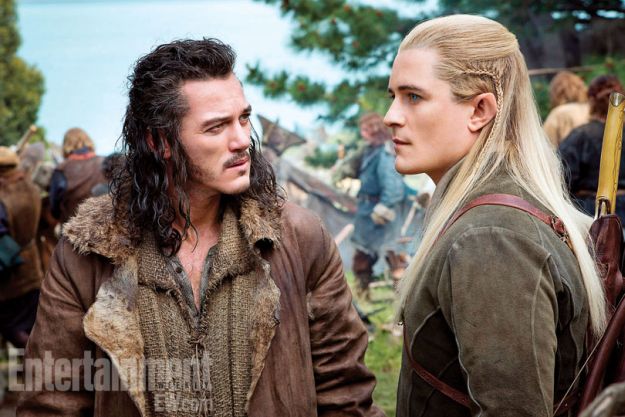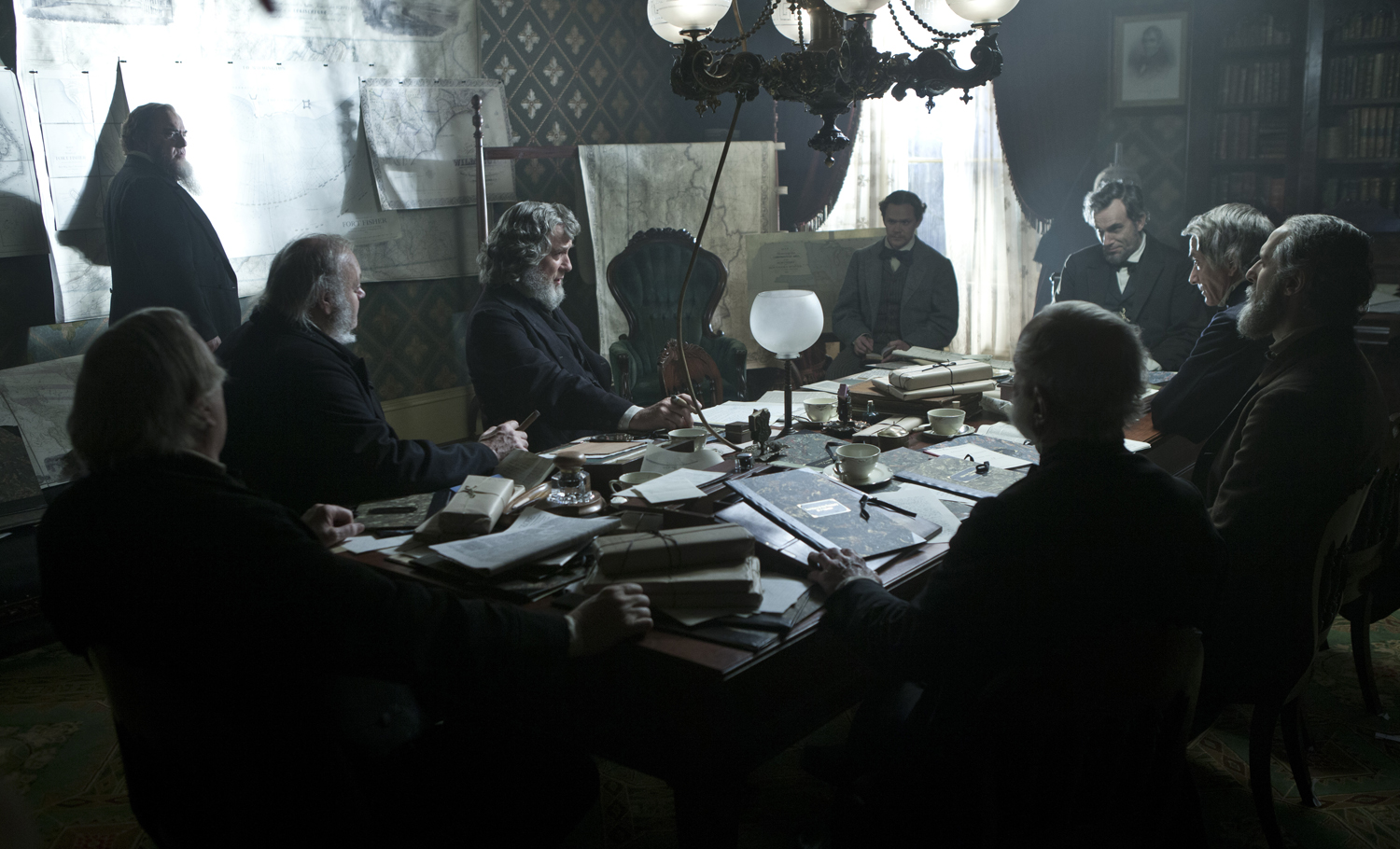

Haunting the Web Since 1999



“Christoph Waltz [plays] Qohen Leth, a computer programmer toiling to understand the meaning of existence. However, surrounded by ‘mancams’ that report all unusual actions back to the shadowy corporate authority known as the Management, Leth finds his efforts repeatedly interrupted by distractions, including a teenager and a lusty love interest.”
Back at work in the fields of dystopia that brought forth Brazil and 12 Monkeys — and even as Johnny Depp opts for his own Quixote project after all these years — Terry Gilliam is apparently hard a work on his next project, currently being filmed: The Zero Theorem. “David Thewlis, Tilda Swinton, and Matt Damon will co-star.”

Historian Eric Foner, who knows of what he speaks, fact-checks Steven Spielberg and Tony Kushner’s Lincoln. I enjoyed the film quite a bit, and would recommend it to all comers, particularly Daniel Day Lewis’s typically amazing performance. That being said, I thought the excessive emphasis on the virtues of compromise in this story was fundamentally wrongheaded.
For one, the death of slavery would never have reached the House floor were it not for several decades of uncompromising agitation by abolitionists. “On this subject, I do not wish to think, or speak, or write, with moderation. No! no! Tell a man whose house is on fire, to give a moderate alarm; tell him to moderately rescue his wife from the hand of the ravisher; tell the mother to gradually extricate her babe from the fire into which it has fallen; — but urge me not to use moderation in a cause like the present. I am in earnest — I will not equivocate — I will not excuse — I will not retreat a single inch — AND I WILL BE HEARD.” As many of y’all know, that’s William Lloyd Garrison in 1831, giving one of the most definitive statements against compromising with an evil like slavery. Point being, compromise didn’t end slavery in America — an abject refusal to compromise did.
For another, as Foner notes, Lincoln had the votes in the next Congress — so there was no real need to compromise in this situation in any case. And besides, is it really a heroic moment for Thaddeus Stevens to be downplaying his commitment on the House floor to basic human equality? Surely, misleading the public about one’s true beliefs in congressional debate is not something we should be applauding. Nor does Washington, now or then, need any more erstwhile reformers who think the right thing to do when confronted with a stand on fundamental principle is to obfuscate and capitulate.
Of course, this nation was founded on compromise — some of them quite repellent, like the Three-Fifths — and the United States wouldn’t exist without it. And at other times, intransigence on principle has lost battles that compromise would clearly have won, such as the stubbornness of Woodrow Wilson dooming the League of Nations to defeat in 1919 and 1920, But the problem with this — mostly contemporary — emphasis on compromise is that it leads the filmmakers to a flawed understanding of the history of this period.
However much research Tony Kushner did on Lincoln here — and the film is indeed very well-written — it’s unfortunately quite clear that he doesn’t know jack about what came after the War. Here’s what he said to NPR on the subject:
“I think that what Lincoln was doing at the end of war was a very, very smart thing. And it is maybe one of the great tragedies of American history that people didn’t take him literally after he was murdered. The inability to forgive and to reconcile with the South in a really decent and humane way, without any question, was one of the causes of the kind of resentment and perpetuation of alienation and bitterness that led to the quote-unquote ‘noble cause,’ and the rise of the Klan and Southern self-protection societies. The abuse of the South after they were defeated was a catastrophe, and helped lead to just unimaginable, untellable human suffering.'”
This, I’m sorry to say, is nonsense. Here, Kushner is blithely reciting a century-old popular myth, perpetuated by the Dunning School and D.W. Griffith, that isn’t just anachronistic and wrong. It’s been widely discredited, by some of the very same authors the film cites as sources.
The noble cause and the Klan did not arise because the North was mean to the former Confederate states. They arose because many in the South refused to accord African-Americans the basic civil liberties for which the war had ultimately been fought. To “forgive and reconcile with the South” would mean acceding to the disfranchisement and general abuse that many whites desired to levy upon African-Americans in the former Confederacy. Indeed, when Kushner’s desired move to “forgive and reconcile with the South” came with the end of Reconstruction in 1877, it was followed relatively soon thereafter by the emergence of Jim Crow. In short, Kushner’s argument here is pure wishful thinking, and it has been exposed as bunk by the last 40-some-odd years of Civil War and Reconstruction histories.
TL;DR: Lincoln is an entertaining and worthwhile film, but, then as now, compromise can be overrated. (Kushner quote via Tropics of Meta.) Update: More from Foner.

